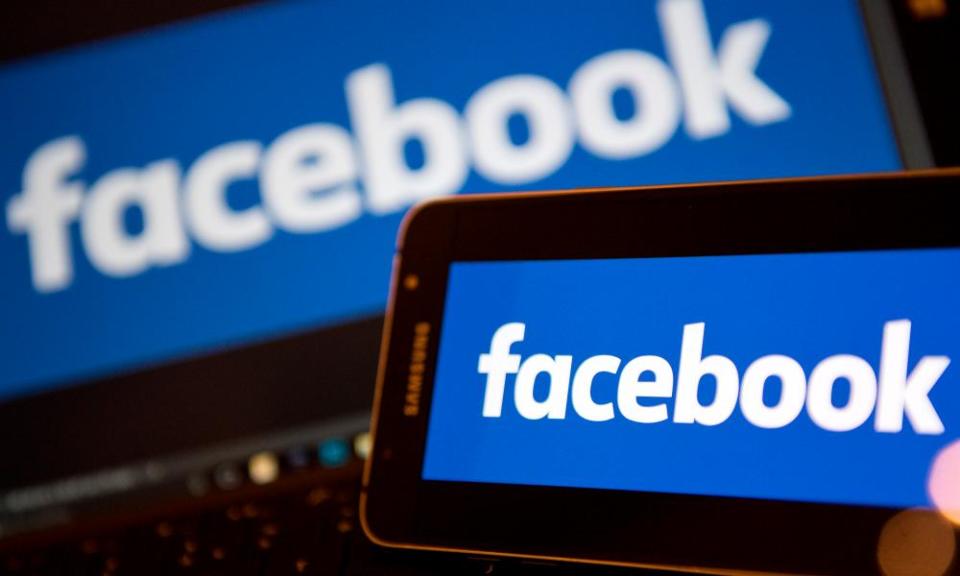Facebook criticised for response to questions on Russia and Brexit

Facebook has been slammed for failing to do any extra work in its investigation into Russian influence on the EU referendum, after the company’s inquiry found just $0.97 (£0.72) of ad spending originating from the notorious Russian “troll army”.
Damian Collins MP, the chair of the House of Commons digital, culture, media and sport select committee, said the company’s initial response to the Electoral Commission “does not answer the questions that I put to Mark Zuckerberg.
“Facebook conducted its own research to identify tens of thousands of fake pages and accounts that were active during the French presidential election,” Collins said. “They should do the same looking back at the EU referendum and not just rely on external sources referring evidence of suspicious activity back to them.”
The social network released the information to the Electoral Commission on Wednesday, in response to the organisation’s investigation into campaign activity funded from outside the UK. Just 200 people in Britain saw the adverts, Facebook said, which cost Russia’s notorious “troll factory”, the Internet Research Agency, just $0.97 to deliver.
“We have examined whether any of the identified Internet Research Agency (IRA) pages or account profiles funded advertisements to audiences in the United Kingdom during the regulated period for the EU referendum,” Facebook said in a letter to the Electoral Commission, shared with the Guardian.
“We have determined that these accounts associated with the IRA spent a small amount of money ($0.97) on advertisements that delivered to UK audiences during that time. This amount resulted in three advertisements (each of which were also targeted to US audiences and concerned immigration, not the EU referendum) delivering approximately 200 impressions to UK viewers over four days in May 2016.”
Google and Twitter were also asked to submit evidence of paid activity to the Electoral Commission. Google has confirmed that it found none, and a spokesperson told the Guardian: “We took a thorough look at our systems and found no evidence of this activity on our platform.”
Twitter says it only identified one Russian account buying referendum-related adverts: the nation’s foreign broadcaster, Russia Today, which spend just over $1,000 on six adverts. “Among the accounts that we have previously identified as likely funded from Russian sources, we have thus far identified one account—@RT_com— which promoted referendum-related content during the regulated period,” the company said in its letter to Collins, seen by the Guardian.
“$1,031.99 was spent on six referendum-related ads during the regulated period. On 26 October 2017, Twitter announced that it would no longer accept advertisements from RT and Sputnik and will donate the $1.9 million that RT had spent globally on advertising on Twitter to academic research into elections and civil engagement,” Twitter added.
An Electoral Commission spokesperson said: “Facebook, Google and Twitter have responded to us. We welcome their cooperation. There is further work to be done with these companies in response to our request for details of campaign activity on their platforms funded from outside the UK. Following those discussions we will say more about our conclusions.”
The commission’s investigation is limited to potentially unlawful campaign spending, while the inquiry led by Collins is taking a broader look at the issue.
He said Facebook’s initial response was far too narrow in scope, and only looked at the suspicious activity uncovered in an earlier investigation into the US, rather than starting afresh and looking for accounts created to skew debate in Britain.
“I asked Facebook to provide the committee with details relating to any adverts and pages paid for, or set up by, Russian-linked accounts,” Collins said. “In their response to the Electoral Commission, Facebook responded only with regards to funded advertisements to audiences in the UK from the around 470 accounts and pages run by the Russian-based Internet Research Agency, which had been active during the US presidential election.
“It would appear that no work has been done by Facebook to look for Russian activity around the EU referendum, other than from funded advertisements from those accounts that had already been identified as part of the US Senate’s investigation. No work has been done by Facebook to look for other fake accounts and pages that could be linked to Russian-backed agencies and which were active during the EU referendum, as I requested.
“Are we to believe that Russian-backed targeting of voters through social media with fake news was limited only to Twitter during the referendum, when both Twitter and Facebook had been used in the USA during the presidential election?”
In the US, when Twitter looked for accounts seemingly run by the IRA that were heavily involved in the discussion around the US general election, it found more than 2,700. Many of those accounts had been regularly cited in the media as apparently real American voters, a Guardian analysis showed, with Russian-authored tweets being quoted more than 80 times in the British media alone.

 Yahoo Finance
Yahoo Finance 